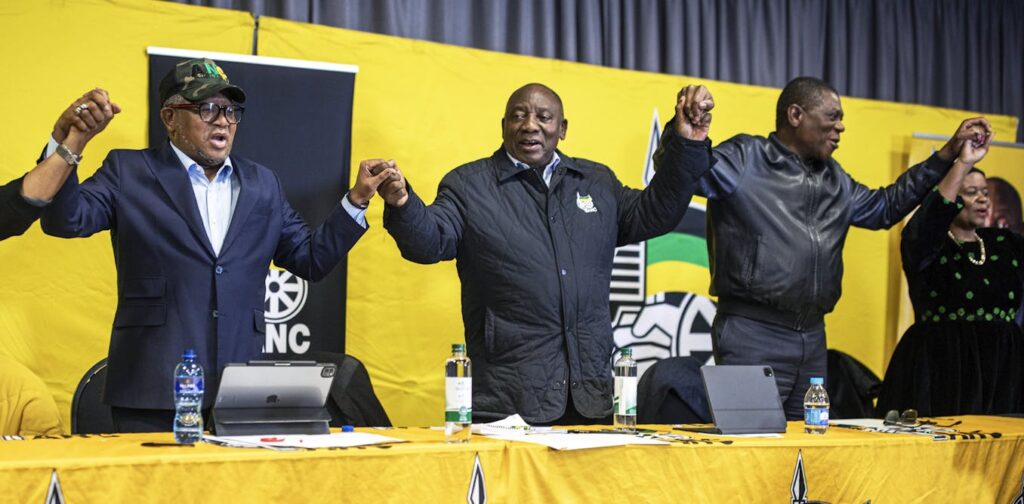After the landmark 2024 general election in South Africa, the ruling African National Congress (ANC) has initiated steps towards the establishment of a government of national unity following the loss of its parliamentary majority. As an expert in political science, I believe that five key political parties, including those with the highest shares of votes, are essential in forming a unity government. This perspective holds true even for parties like the Economic Freedom Fighters, who have expressed opposition to the idea of a government of national unity. It is important to consider the inclusion of smaller yet significant political parties in this process.
The five crucial parties for forming an inclusive government representative of South Africa’s electorate are the ANC, the main opposition Democratic Alliance, the Economic Freedom Fighters, the Inkatha Freedom Party, and the Patriotic Alliance. These parties play a vital role in creating a diverse and representative government aligned with the voting public’s interests.
It is worth noting that while Jacob Zuma’s uMkhonto we Sizwe Party holds the third-largest share of votes, its anti-constitutional stance disqualifies it as a potential partner in a unity government. The party’s actions, such as planning to prevent the first sitting of parliament through a court interdict, raise concerns about its commitment to democratic processes.
The concept of a government of national unity is not new in South Africa, with roots in the post-apartheid era to foster political stability. The current shift away from single-party dominance signals a desire among voters for collaboration in addressing critical challenges like unemployment, economic stagnation, public sector inefficiencies, and persistent socio-economic disparities.
As South Africa navigates the path towards a government of national unity, it is crucial for political parties to transcend their ideological differences and prioritize cooperation for the greater good. Understanding common ground and shared priorities among the parties is essential for ensuring political and administrative stability, particularly in promoting economic growth and social development.
An examination of each party’s election manifesto provides insight into their worldviews and policy priorities. The ANC’s focus on social welfare and income redistribution, the Democratic Alliance’s emphasis on economic liberalism and private sector development, the Economic Freedom Fighters’ socialist agenda, the Inkatha Freedom Party’s commitment to constitutionalism and economic diversification, and the Patriotic Alliance’s conservative and nationalistic worldview all present unique challenges and opportunities for collaboration within a unity government.
In conclusion, achieving a government of national unity in South Africa requires ideological flexibility, maturity, compromise, and a willingness to adapt to changing circumstances. By embracing these principles, political parties can work together towards stability, prosperity, and national rebuilding through innovative policy solutions.
